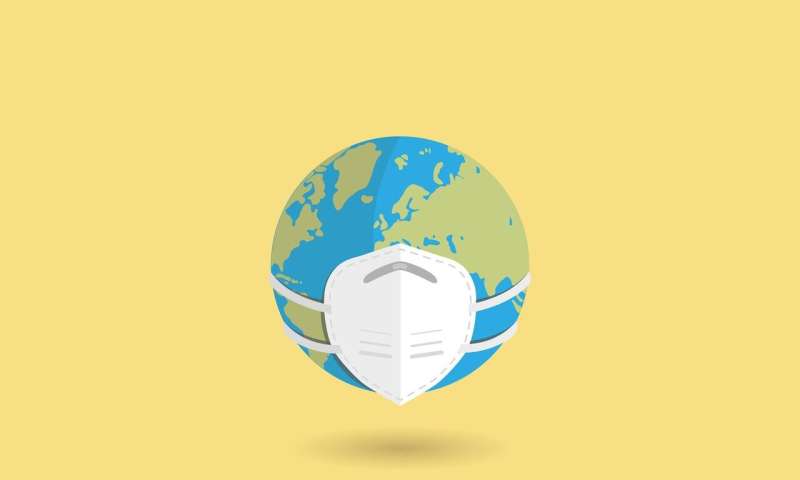New York shuts early as hospitals fill up in Europe

Bars and restaurants in New York will shut early on Friday as part of fresh measures designed to slow surging new coronavirus infections in the United States as hospitals in many European countries fill up with new patients.
New York State Governor Andrew Cuomo has announced that all establishments licensed to sell alcohol, including bars and restaurants, should close at 10 pm.
The United States and parts of Europe are recording higher infection and hospitalisation numbers than they had during the first wave in March and April.
With daily cases nation-wide averaging more than 125,000 in the US, Illinois Governor JB Pritzker said he may issue stay-at-home orders for Chicago and the rest of the state if new infections continue their current trend.
“With every fibre of my being I do not want us to get there,” said Pritzker. “But right now that seems like where we are heading.”
Chicago has issued a non-mandatory stay-at-home advisory because its hospitals serving the poorest communities are filling to breaking point.
Hospitals are also treating more patients in France than they did in April, while Serbia’s capital Belgrade has started shipping its COVID-19 cases to other cities because its beds are all full.
“We are now facing the most difficult moment of the pandemic,” neighbouring Croatia’s Prime Minister Andrej Plenkovic said.
‘Two months’
The latest wave of shutdowns and stay-at-home orders come at a time when policymakers are worried about how long they can keep people cooped up at home.
“COVID fatigue is definitely setting in,” Newark mayor Ras Baraka said after imposing a nighttime curfew Thursday on his city on the edge of New York.
An Ifop survey in France showed 60 percent of respondents admitting to flouting rules at least once by making up a false excuse to go out or meeting up with family and friends.
Greece decided on Friday to impose a nightime curfew after its second-largest city of Thessaloniki saw 32 percent of those tested show a positive result.
Neighbouring Turkey has issued a nationwide ban on smoking in the streets as a precaution because lighting up forces people to take off their masks.
And Portugal has extended work-from-home orders to roughly three-quarters of its population.
As well as worries about mental health and compliance, governments are also anxious about now how long these curbs can last without devastating economies that had only begun to stir back to life.
Capital Economics noted that French President Emmanuel Macron had promised last month to lift restrictions once new daily infection numbers fall from the current 30,000-40,000 to just 5,000.
“On that basis, if cases fall by the same rate now, France’s lockdown could last for over two months,” the consultancy said in a research note.
Santa’s travel clause
Yet the news is not all gloom and doom.
Some economists believe that the world is slowly learning to work from home and that the hit of new restrictions will not be as severe on many industries this time around.
And US government scientist Anthony Fauci issued a tantalising hint Thursday that another vaccine is “literally on the threshold of being announced”.
American pharmaceutical giant Pfizer and its German partner BioNTech announced Monday that their vaccine had proven 90 percent effective in preventing COVID-19 infections in ongoing Phase 3 trials involving more than 40,000 people.
“The cavalry is coming, but don’t put your weapons down,” Fauci told a conference by video link on Thursday.
Most believe he was referring to Moderna—a US biotech firm focused on the same mRNA research as Pfizer and Germany’s BioNTech.
And Italy’s Prime Minister Giuseppe Conte tried to lighten the mood even as his country began recording nearly five times as many daily infections as it had when it became the first country in Europe hit by the virus early this year.
Source: Read Full Article
